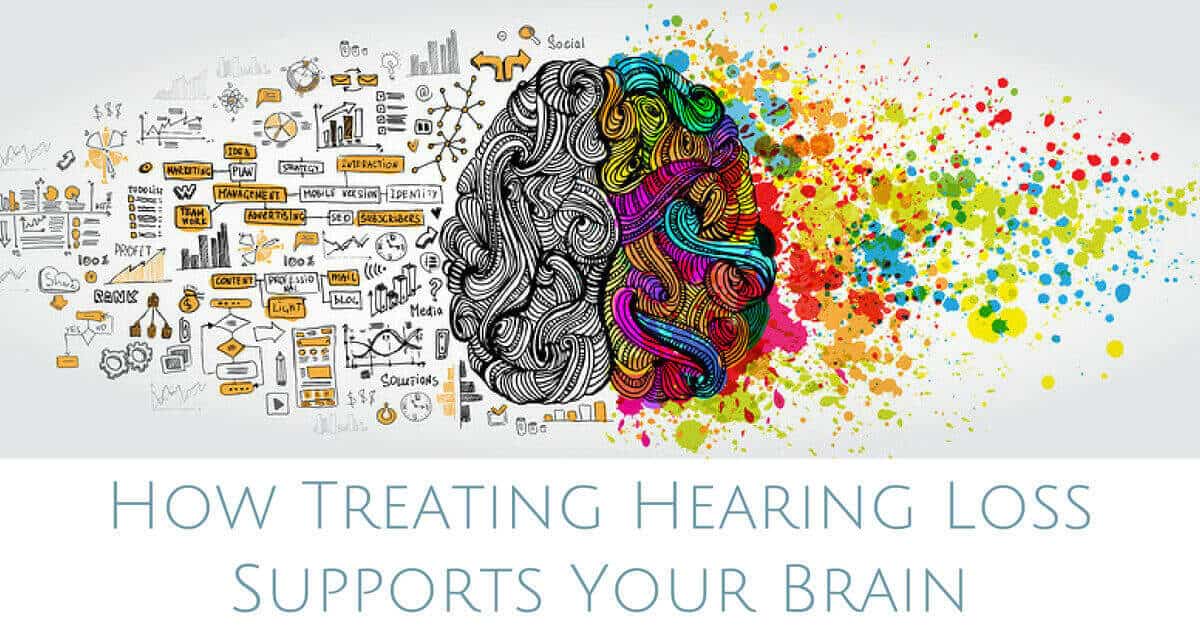Hearing loss affects nearly 48 million Americans of all ages, making it hard to communicate, reducing quality of life, and affecting overall health and wellbeing. Seniors are especially at risk, with half of adults over the age of 75 struggling to hear. What we don’t often realize is that hearing loss is doing far more than making it difficult for us to follow conversations, it is actually reorganizing the very structures of our brain and changing how we think.
Neuroplasticity
A recent study from the University of Colorado’s Department of Speech Language and Hearing Science looked at how the brain responds to hearing loss. Specifically, the researches wanted to know how neuroplasticity, the brain’s ability to form new neural connections, affects how the brain adapts to hearing loss. Those of us who haven’t studied the brain often think that the brain is fairly static and unchanging. Neuroscientists know that the brain actually has a remarkable ability to adapt to change, whatever your age.
What does this have to do with hearing loss? As your hearing deteriorates, the parts of your brain that process auditory and speech sounds aren’t receiving sound input from the ear, and therefore aren’t being used. As time passes, those structures of the brain are reorganized, or assigned to other functions in the brain.
Studying Brain Function
Researchers at the University of Colorado recruited a number of adults and children with hearing loss and looked at their brain activity using EEG technology. They played a number of sounds and watched how the brain responded to this stimulation. What they found was that areas of the brain normally used to hear weren’t activated. In fact, other senses such as vision or touch, take over the parts of the brain normally dedicated to hearing. Scientists call this cross-modal cortical reorganization, which means the brain compensates for loss in one sense by strengthening other senses.
Neuroplasticity and Cognition
This ability to adapt to change may seem like a good thing, but when it comes to hearing loss, neuroplasticity can have some dire effects on cognition. We know that hearing loss leads to reduced concentration, slower processing, and cognitive decline. This adaption system, which helps in most cases, actually works against you by reducing your brain’s ability to process sounds. You’ll have an even harder time understanding speech or following conversations.
As these hearing centers of your brain become weaker, you concentrate more on hearing, and focus all your energy on understanding speech. This means that the areas of the brain used for higher level thinking take over to try to help you hear a bit more. Unfortunately, this makes it impossible for these areas to do their job and help you with reasoning and other cognitive tasks. “Centers of the brain that are typically used for higher-level decision-making are then activated in just hearing sounds,” Anu Sharma from the University of Colorado explains. “These compensatory changes increase the overall load on the brains of aging adults.”
Hearing Loss and Dementia
Have you heard that hearing loss and dementia are linked? Those with hearing loss are at a much higher risk of developing dementia, and if you have moderate to severe hearing loss, you’re 3 to 5 times more likely to have dementia than your hearing peers! The brain’s reorganization after hearing loss may explain this link. Even with mild hearing loss, the brain begins to reorganize, using cells for other senses, and forcing your higher-level centers to step in, causing slower processing, fatigue, and brain cell deterioration.
Treating Hearing Loss Supports Your Brain
If you have hearing loss, early intervention and treatment is the key to supporting your brain and maintaining cognitive function. When you treat your hearing loss with hearing aids, you’ll be making sure your brain is receiving all the sounds it needs to hear clearly. Not only does this mean you’ll be able to hear the sounds around you, communicate easily, and listen in any environment, you’ll also be making sure your brain’s auditory centers are being used to hear. You won’t have to worry about your brain reorganizing, or reallocating those cells for something else, and you can rest easy knowing that you won’t face rapid cognitive decline.


